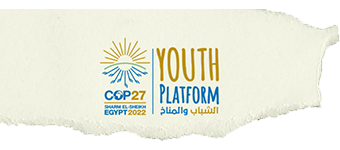Dr. Assem Abdel Moneim, assistant professor and researcher at the Central Laboratory for Agricultural Climate at the Agricultural Research Center, said that barley is an important crop globally and locally. It ranks fourth in terms of importance after maize, wheat and rice. It has been used as food for humans and animals for more than ten centuries BC. This crop has characteristics that are unique to other grain crops, the most important of which is its environmental adaptation more than any other grain crop. It is also used for human and animal nutrition. While the “malt” extract from it is superior in the manufacture of alcohol and beer than others extracted from other crops.
Despite this, it is grown in limited areas in old lands that have salinity problems with irrigation water or soil. At the ends of the canals that do not reach a sufficient amount of irrigation water.
The total area cultivated with barley in the governorates of the old lands is about 10,000 feddans. It is also grown in new lands and rainy desert areas. They are either poor sandy lands or lands affected by salinity and suffer from a lack of irrigation water. Where the cultivated area is about 56.5 thousand acres. About 171,000 feddans in Matrouh Governorate are cultivated with rainfed crops as pastures. And about 4 thousand feddans in North Sinai as pastures, depending on the amount of rainfall and its distribution during the season.
According to the statistics of the Economic Affairs Sector at the Ministry of Agriculture, the area of the pumpkin crop is 254 acres for the year 2020, while the summer squash area reached about 61 acres for the year 2020.
says d. “Asem” Different adaptation measures that deal with climate change and are built on improved land and water management practices have the potential to create adaptation to climate change and address water scarcity.
It is important for countries that suffer from water scarcity, such as Egypt, to develop short, medium and long-term strategies for food security. Which takes into account population numbers and future population increase. Provided that these strategies are not carried out in isolation from the agricultural policy set by the state to advance the agricultural sector.
Barley substitute for wheat
As for Dr. Obeid, he believes that Egypt should expand the cultivation of water-saving crops, such as barley. It tolerates the salt stresses of newly reclaimed lands and is drought tolerant. It has medicinal uses and antioxidants and can be grown in rainy places in Egypt, newly reclaimed and soil affected by salinity. In addition to its low cost and water saving.
As for the “quinoa” crop, it is a winter crop that succeeds in soils affected by salinity and is thirst-tolerant and can be grown with drip irrigation systems. An acre produces 1 to 1.5 tons of grain that can be ground and added to wheat flour at a rate of 10-20% for the manufacture of bread and baby food. Edible oil is also extracted from its grains, which is close to corn oil in terms of its nutritional value.
Likewise, the stevia plant – according to Fakhry – is one of the crops that must be cultivated more widely. It is a sugar crop that does not need much irrigation water like sugar cane. Its leaves are used to sweeten hot drinks and juices, and to manufacture jams and drinks that are safe for diabetics.
He added that it is a perennial plant, from which 3-5 bunches are taken. One acre produces a ton of dry leaves. The sweetness of stevia is between 200 and 300 times that of cane sugar. 80 kg of stevia sugar is equivalent to 16 tons of cane sugar. In addition, 28.5 thousand acres of stevia can be cultivated to cover Egyptian imports of sugar, which are estimated at $342,000 annually.
Pumpkin is one of the crops that adapt to all types of soils except for highly saline and alkaline. It is a summer crop that is grown between March and July. An acre needs 1 kg of seeds and does not need an abundance of water. It produces fruits after 5 months, depending on the variety.












